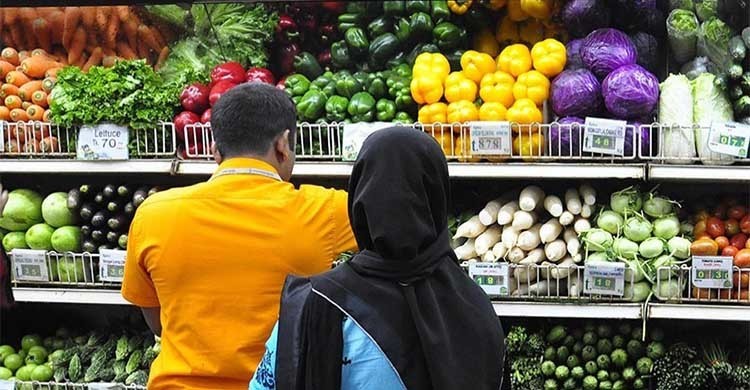Cost of living in Dhaka increased by 11.08per
21 January 2023, 07:52 pm | Updated: 20 April 2025, 11:17 pm

The Consumers Association of Bangladesh (CAB) said that the cost of living in the capital Dhaka has increased by 11 percent in 2022. In July, 2022 non-food inflation was the highest at 18.6 percent.
The report released on Saturday said that around 17 products have directly contributed to the rise in inflation as well as the cost of living in 2022.
The urban lower-income group of people has compromised their diet chart and lifestyle due to the increase in the prices of essential commodities, fish and meat.
The report was presented on behalf of CAB by Mahfuz Kabir, research director of the Bangladesh Institute of International and Strategic Studies (BIISS).
According to the report, the cost of living in the capital increased by 6.88 percent in 2020 and 6.5 percent in 2019.
Dr Kabir has prepared the result, which was collected from 11 markets across Dhaka (Dhaka North and South City Corporation). It has covered 141 food items, 49 non-food items and 25 services.
Rice, flour, pulses, bakery products, sugar, fish, eggs, domestic poultry, edible oil, imported fruits, tea and coffee, local and imported milk, washing and personal hygiene items, and transport costs are included in the CAB price monitoring.
The CAB has proposed policy recommendations in the analysis of inflation trends. In the recommendations, the association said the government has increased support under subsidised food aid and social protection to reduce inflationary pressure on the poor and disadvantaged.
But the government should extend social protection schemes in urban areas to protect low and middle-income consumers from rising inflationary pressures.
The government has significantly increased OMS activities during Covid-19, which has been extended further in 2022 to protect this consumer groups from the economic slowdown and inflationary woes.
But there is an inadequacy of food supply through OMS against extremely high demand and a lack of proper monitoring to ensure equitable distribution of OMS food products among low-income people.
The CAB recommendation has also opposed the decision to increase gas and fuel oil prices at the retail level as the bulk price hike of gas and oil would affect the lower-income people.
CAB President Golam Rahman. Vice President SM Najer Hossain, General Secretary Advocate Humayun Kabir Bhuiyan, joint secretary Dr. Md. Shahnewaz Chowdhury and Md. Qazi Abdul Hannan were also present at the press conference held virtually.
SH/






















